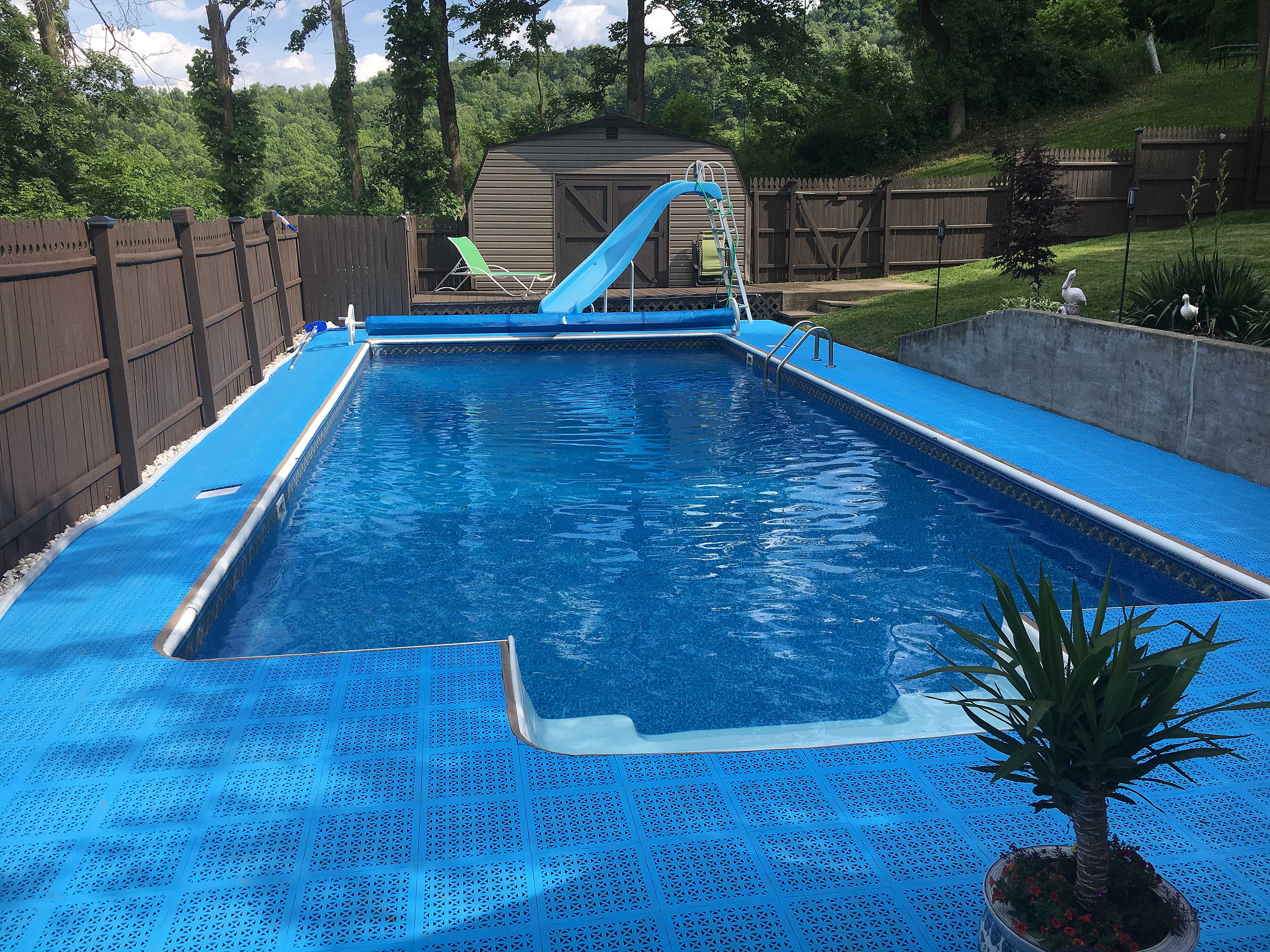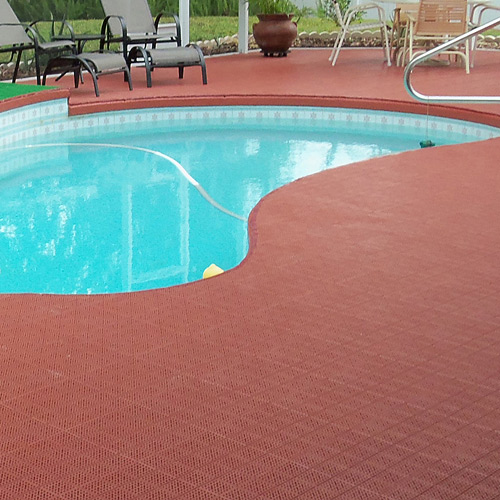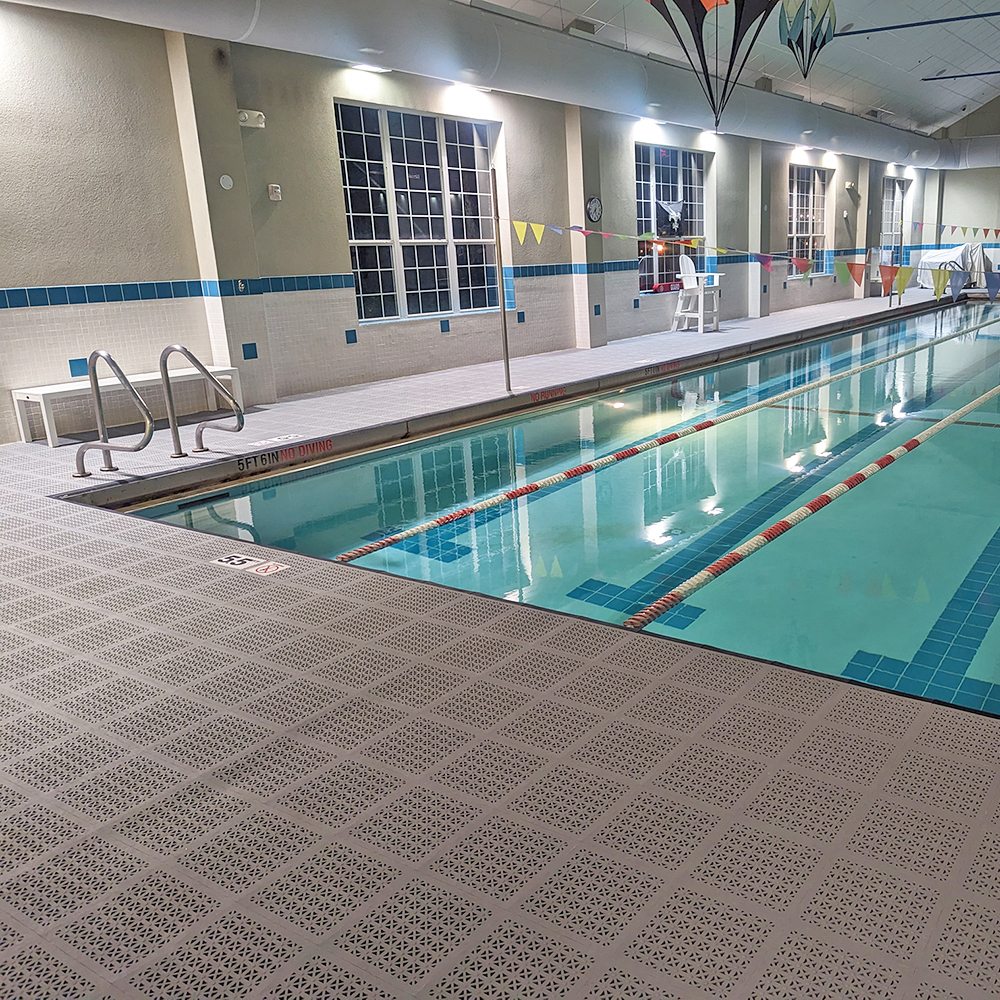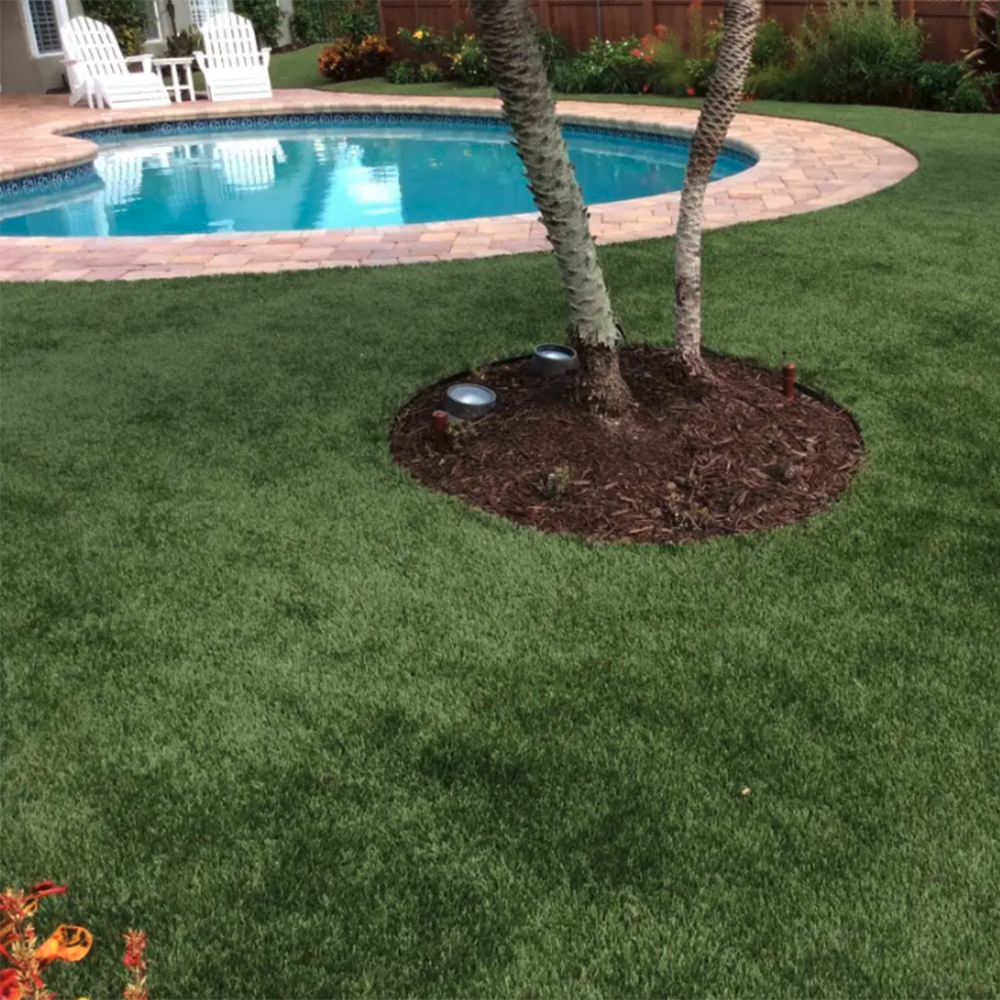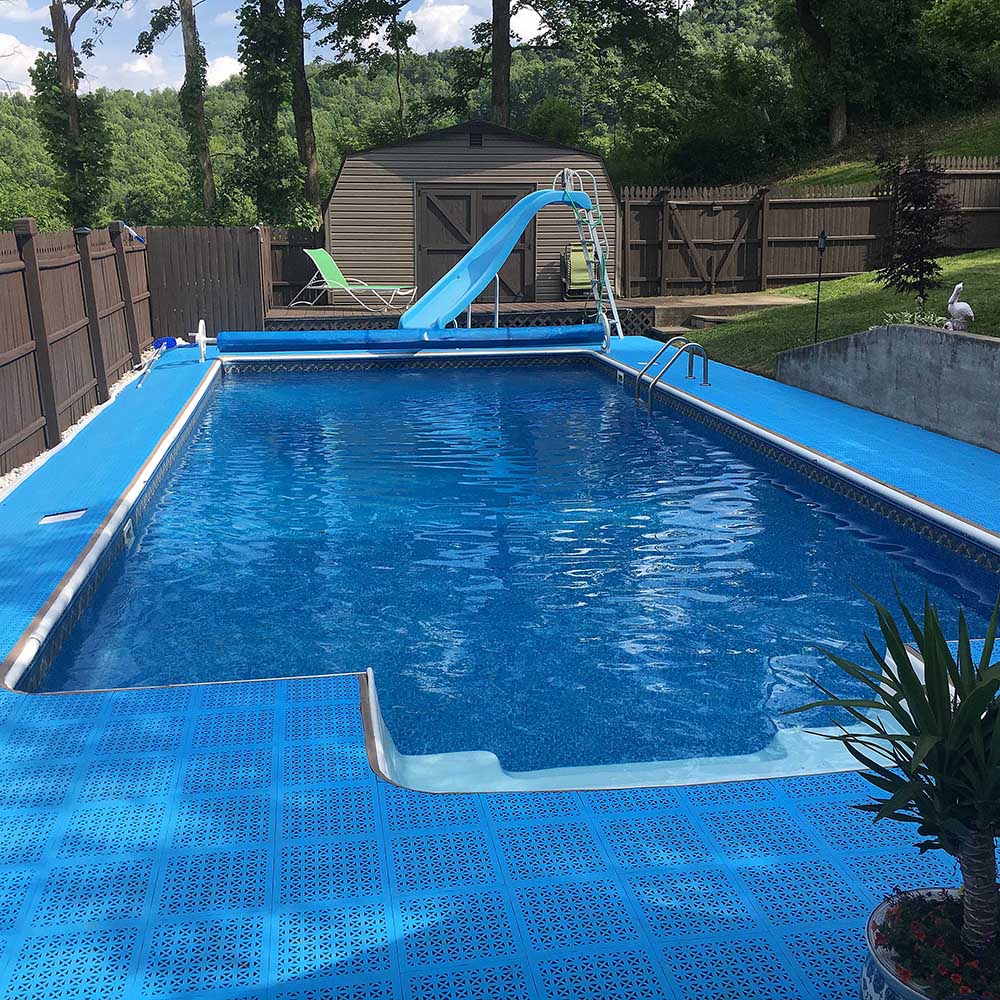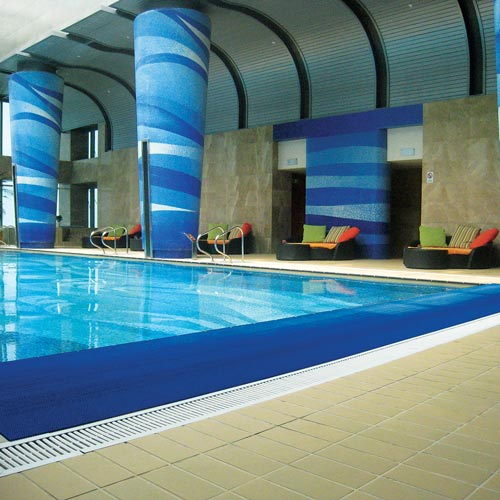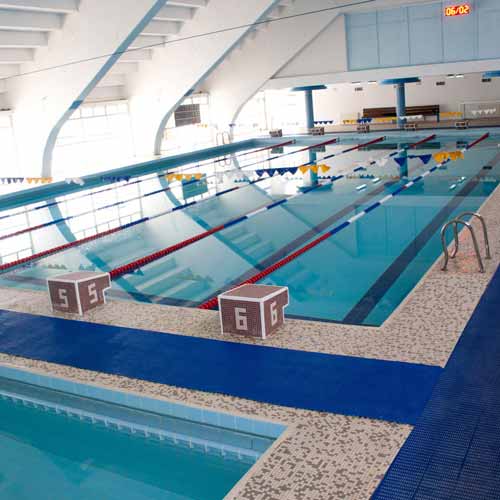What is the best deck material to use around a pool?
Related Product: StayLock Tile Perforated Colors 9/16 Inch x 1x1 Ft.
The downside of these choices can be the lack of safety and slip resistance some of these options have. All of the traditional choices are hard and unforgiving. Stone and ceramic tiles can also be slippery especially when wet.
What is the Best Material to Use Around a Pool?
PVC
PVC tiles and mats for pool decks provide slip resistance in wet areas. Most options are perforated to allow water to drain through, preventing puddles on the surface of the pool deck. PVC is often mistaken for rubber, due to its flexibility.
Most PVC options are softer than concrete. Some even provide anti-fatigue benefits.
Our PVC tiles feature interlocking connections for easy installation. These can be cut to fit with a sharp utility knife. These are great options if you want to cover your whole pool deck with a DIY install.
PVC mats are an excellent choice for covering smaller areas such as near the stairs or ladder of a pool or in high-traffic areas along the edge of the pool.
Both PVC tiles and mats can be used for portable or temporary deck flooring.
Vinyl
Vinyl is a very versatile, durable material. Vinyl flooring rolls that are specially made for deck and pool areas are the best choice for pool surrounds. Because of the glue-down installation, these are for permanent installations only.
If your pool deck tends to get too hot to walk on, our LonDeck Sol product features CoolTouch technology which reflects the sun's UV rays and can decrease the surface temperature up to 10 degrees Fahrenheit. LonDeck Sol features a leather grain texture for added slip resistance. Please note that this flooring is suitable for permanent installations only, as it requires a glue down installation and seam sealing by a professional.
Artificial Turf
Artificial turf for pools provides a non-slip surface while providing a natural look with less maintenance versus real grass. Real grass next to a pool area can become a muddy area.
Choose an artificial turf with a taller pile height for added softness and comfort underfoot. If your pool area is outdoors, you should choose a turf that is UV treated to maximize its lifespan.
Make your pool deck safer with new flooring or mats.
